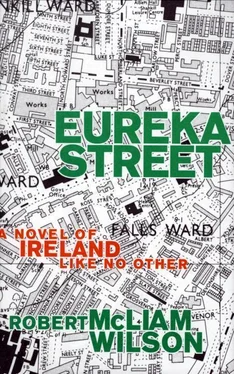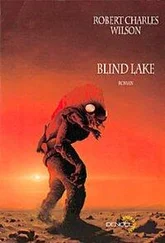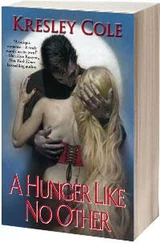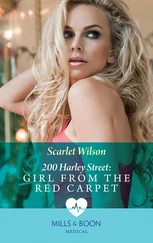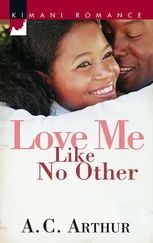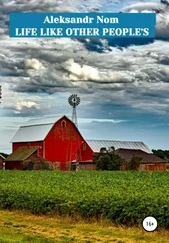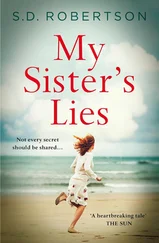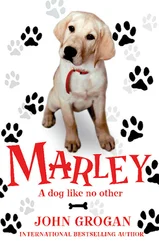In that rainy moment as he stepped over the cracked paving stone between and it struck him like some soundless klaxon. That last mental phrase burgeoned in his mind like some thermonuclear aftershock. He stopped stock still on Eureka Street and looked for stars he could not see. The clouds were low and the mist of rain was thick. Even where the land rose towards the West, nothing beyond the lit precincts of the city was the mountains had disappeared. Rain always made Belfast seem smaller, more itself. Rain always made Belfast look to Chuckie as though it was the last place left in the world.
But now the rain washed and cooled the fever of his ecstatic face. He was transfigured, amazed. Afterwards it would always seem to him that he had been touched by something godly, something almost famous. Afterwards, it seemed that the whole strange evening had been the simple etheric precedent for this moment: the eavesdropping on his mother, their first conversation for ten years, his life-list. It was the indication that, before the day was through, his world would change for ever.
For five minutes Chuckie stood thinkfully in the rain two doors down from his own. And in the shabby, damp, poorly lit theatre that was Eureka Street, the tangle of his thoughts untangled, smoothed themselves out like paper and Chuckie read there an idea so tremendous, so grand, that he felt like a bigger man already.
The way my head banged, when I opened the curtains that Monday morning, I knew it had just been the weekend.
I remembered as I peed and made coffee, practically simultaneously. I'd spent the weekend in the Crown. I'd all but slept there. Slat, Chuckle, Donald Deasely and Septic Ted. I had been chugged naturally. Drunk was hardly the word. A few pints of Bass and I'd been telling eight-foot Protestants why I was a lapsed Catholic. Well, I don't really drink. So, when I really grief.
Chuckie had been weird. He hadn't been there the whole time, which was weird enough in itself. Chuckie had never met a beer he didn't drink and his missing any of our carousing was unheard of. The sensation of being drunk without him was most uncustomary. He'd met some girl, he told us, some beautiful American. We laughed, naturally, but we were worried. There was a new light in Chuckle's face, a new angle to the way he carried that blunt head of his. I always hated it when my friends surprised nie. That wasn't what they were for.
I thought about having a shower but pulled on my working clothes instead. I had forty minutes to get out of the house and coffee was more important than hygiene. I checked for mail (no mail) and let my cat in.
Another wasted weekend. Nothing said worth saying; nothing done worth doing. I wanted to do other things. I wanted to see Mary and find out how reluctant she could be. I should have made my weekend a fruitful thing including her. But no. I pissed it away down the Crown.
Even as I drank my coffee, I tried telling myself stories about it. I tried to remember and believe what fun it had all been. But it had been no fun. We had all hated it. Slat had practically wept with despair on the Sunday afternoon and even Septic Ted, not known for his delicacy or depth, had said that there had to be something else.
So why had we done it? None of us had drunk that much for years. We hadn't been so childish, so objectionable, so male for years. Why? I don't know about the others but it was simple for me.
It was because I knew Mary wouldn't call. It's because I didn't want to be there when the phone didn't ring.
My cat was screaming at me. He was getting it was the way I'd had his balls cut off. He was trying out a series of new miaows and yowls on me. There were diphthongs, voice-throwing, operatic quavers. It was seven o'clock. Too early for this shit. I piled his dish high to shut him up but he could miaow while he ate these days. I switched on the radio to drown the noise.
`A part-time UDR soldier was killed last night in an explosion in the Beechmount area of West Belfast.Two other soldiers were injured. The incident happened just after ten o'clock. A bomb was thrown at the soldiers' Land-Rover. A security force spokesman said that..
I switched off the radio. In Belfast the news was an accompaniment like music but I didn't want to hear this stuff. Coffee- jar bomb. Yeah, that was another big craze. I got the idea that people were impressed by this new thing, this wheeze, this caper. Me, I wasn't impressed. It was easy to do that ugly stuff.
Suddenly I longed to leave Belfast. Because of an inadvertently heard news story, the city felt like a necropolis. When the bad things happened, I always wanted to leave and let Belfast rot. That was what living in this place was all about. I got this feeling twice a week every week of the year. Like everyone here, I lived in Belfast from day to day. It was never firm. I always stayed but I never really wanted to.
Depressed, I grabbed my coat and left my flat. In Mullin's I bought several cigarettes and a pint of pasteurized. I lit a fag and drank the milk while I drove down the Lisburn Road and on to Bradbury Place, still grubby and paper-strewn after its usual festive night. It was early and the people were soft and pretty, most still rumpled and creased from their recent sleep. Men in suits walked with habitual confidence, unaware that their hair stuck up endearingly; trim women didn't notice that the labels on their dresses were showing and their lipstick was slightly crooked. Belfast was only half awake and its citizens were mild and lovable as children.
As I drove there under the pale sky, I weltered in sentiment. And it was briefly good to be doing what I was doing. Driving to my hard day's toil. In my big boots, my artisan's shirt and my rough trousers I felt dignified, I felt worthy, I felt like the nineteen thirties.
Then I remembered what I did for a living.
I was a repo man. I was a hard guy. I was a tough. I'd been doing it for nearly six months. I'd been doing it since Sarah had left. I'd just gone back to the way I'd mostly been. Before Sarah, I'd sometimes earned my living by fighting people, hitting people or just by looking like I might do any of those things. Bouncer, bodyguard, general frightener, all-purpose yob, I had had the full range. It wasn't that I was big. It wasn't that I was bad. It was just that I was so good at fighting.
In the years after I went to college, I used these skills and butched my way round London, punching heads for cash-in fist. I went to America for a short stint, quickly discovering that they were all much too good at fighting, and then back to my imperfectly macho hometown. I seldom had to do any real harm. When sporadically called to punch a head or two, I punched a head or two. It seemed easy then. I was like an actress doing a nude scene. I told myself I didn't really mind.
Then one night, doing the door at a dockers' bar, I'd had to mash some old guy who'd been goosing the barmaids. He'd turned bolshie when I'd chucked him out and had kept coming at me. No matter how many times I hit him, no matter how hard, he was so roofed that none of it hurt. In the end I'd laid him out cold. As he lay there on the filthy pavement, his face red and ragged, his gut exposed, I'd felt like chucking my stomach.
And soon afterwards, Sarah had come and ironed me smooth, pressed the tough stuff right out of me. It was only then that I worked out why it was always so easy to hit people. It was because I had no imagination.
The human route to sympathy or empathy is a clumsy one but it's all we've got. To understand the consequences of our actions we must exercise our imaginations. We decide that it's a bad idea to hit someone over the head with a bottle because we put ourselves in their position and comprehend that if we were hit over the head with a bottle, then, my goodness, wouldn't that hurt! We swap shoes.
Читать дальше
